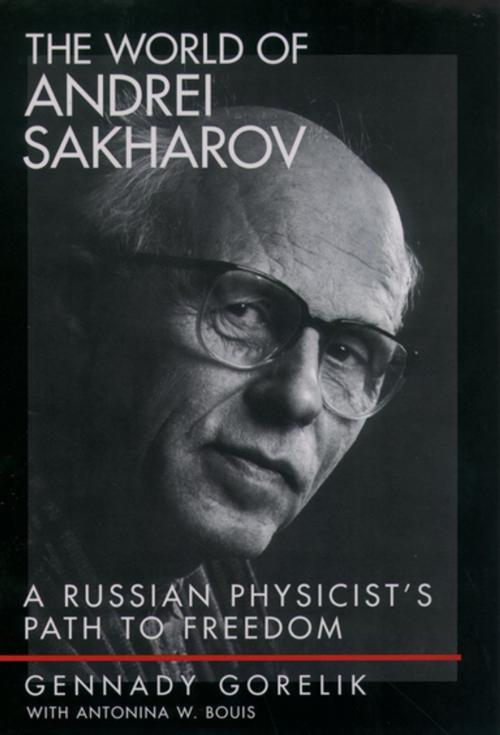The World of Andrei Sakharov
A Russian Physicist's Path to Freedom
Nonfiction, Science & Nature, Science, Physics, General Physics, History, Asian, Russia, Other Sciences| Author: | Gennady Gorelik, Antonina W. Bouis | ISBN: | 9780190288778 |
| Publisher: | Oxford University Press | Publication: | April 14, 2005 |
| Imprint: | Oxford University Press | Language: | English |
| Author: | Gennady Gorelik, Antonina W. Bouis |
| ISBN: | 9780190288778 |
| Publisher: | Oxford University Press |
| Publication: | April 14, 2005 |
| Imprint: | Oxford University Press |
| Language: | English |
How did Andrei Sakharov, a theoretical physicist and the acknowledged father of the Soviet hydrogen bomb, become a human rights activist and the first Russian to win the Nobel Peace Prize? In his later years, Sakharov noted in his diary that he was "simply a man with an unusual fate." To understand this deceptively straightforward statement by an extraordinary man, The World of Andrei Sakharov, the first authoritative study of Andrei Sakharov as a scientist as well as a public figure, relies on previously inaccessible documents, recently declassified archives, and personal accounts by Sakharov's friends and colleagues to examine the real context of Sakharov's life. In the course of doing so, Gennady Gorelik answers a fascinating question, whether the Soviet hydrogen bomb was really fathered by Sakharov, or whether it was based on stolen American secrets. Gorelik concludes that while espionage did initiate the Soviet effort, the Russian hydrogen bomb was invented independently. Gorelik also elucidates the reasons that brought about the seemingly sudden transformation of the top-secret physicist into a public figure in 1968, when Sakharov's famous essay "Progress, Peaceful Coexistence, and Intellectual Freedom" was distributed in samizdat in the USSR and smuggled out to the West. Recently declassified documents show that Sakharov's metamorphosis was caused by professional concerns, particularly regarding the development of an anti-ballistic missile defense. An insider's view of how the upper echelons of the Soviet regime functioned had led Sakharov to the conclusion that the goals of peace, progress, and human rights were inextricably linked. His free thinking and free feeling were manifested in his hope that scientific thought and religious perception would find a profound synthesis in the future.
How did Andrei Sakharov, a theoretical physicist and the acknowledged father of the Soviet hydrogen bomb, become a human rights activist and the first Russian to win the Nobel Peace Prize? In his later years, Sakharov noted in his diary that he was "simply a man with an unusual fate." To understand this deceptively straightforward statement by an extraordinary man, The World of Andrei Sakharov, the first authoritative study of Andrei Sakharov as a scientist as well as a public figure, relies on previously inaccessible documents, recently declassified archives, and personal accounts by Sakharov's friends and colleagues to examine the real context of Sakharov's life. In the course of doing so, Gennady Gorelik answers a fascinating question, whether the Soviet hydrogen bomb was really fathered by Sakharov, or whether it was based on stolen American secrets. Gorelik concludes that while espionage did initiate the Soviet effort, the Russian hydrogen bomb was invented independently. Gorelik also elucidates the reasons that brought about the seemingly sudden transformation of the top-secret physicist into a public figure in 1968, when Sakharov's famous essay "Progress, Peaceful Coexistence, and Intellectual Freedom" was distributed in samizdat in the USSR and smuggled out to the West. Recently declassified documents show that Sakharov's metamorphosis was caused by professional concerns, particularly regarding the development of an anti-ballistic missile defense. An insider's view of how the upper echelons of the Soviet regime functioned had led Sakharov to the conclusion that the goals of peace, progress, and human rights were inextricably linked. His free thinking and free feeling were manifested in his hope that scientific thought and religious perception would find a profound synthesis in the future.















